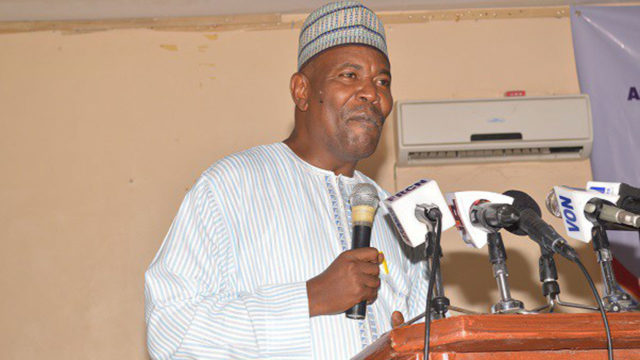It has been observed that these are difficult, uncertain and changing times for the media industry, nationally and globally requiring urgent professional attention and intervention.
The observation was made by the Vice Chancellor of the Federal University, Kashere in Gombe State, Professor Umar Ali Pate in a keynote address he delivered at the opening of the 80th General Assembly of the Broadcasting Organisations of Nigeria (BON) in Bauchi on Tuesday with the theme ‘The Broadcast Media in the
era of Economic Downturn: The way forward’.
ALSO READ FROM NIGERIAN TRIBUNE : Gov Bala reiterates commitment to strengthen media industry
Pate said, “The fact that the media landscape is being redefined and refocused courtesy of emerging technologies, a rise of new owners and players, changing media consumption habits of the audience, credibility challenges and decline in revenue earnings from advertising.
“Indeed, the future in the media landscape is here, only that it is unevenly distributed, nationally and globally. The sustainability of individual media houses is a major issue of concern for everyone in the industry.
“The Nigerian broadcasting landscape is no different from the global landscape. It is reflective of the political economy and social realities of the country.
“Nigerian broadcast media industry is battling the challenges of funding, technology, content, credibility, press freedom and professional safety in addition to fragmentation and changing consumption habits of the citizens with reduced attention span of people and rise of new owners.
“Political interferences, low investments and unfavourable operational environments are hindrances. There is a failing connection between young Nigerians and the conventional media, though, most adult citizens still cherish, respect and expect credible broadcast journalism in the country.
“The broadcast media in most countries are contextually rebranding, but imbibing and aligning to global realities, particularly in technologies.”
He stressed that media infrastructure has hugely and speedily digitalised (audio and video), and trust has consistently remained the key in media relationships with the audience.
Pate stressed that content is the window for the media: that needs good technology stressing that there is a correlation between investments in technology and product development and sustainability of media businesses.
He added that collaboration and partnership in different aspects, audience engagement is the key now stating that, “data economy: everything we do generates data and serves in production.”
On sustainability options, he stated that People expect to see certain attributes in the media: credibility, quick delivery, best information conveyance, clarity, contextualise and confirm.
On revenue diversification, he observed that globally, traditional sources of revenue for the media are failing due to many reasons as advertising still remains the leading source of revenue but many more non-traditional players are competing for the available monies.
“Hence, diversification in innovative and entrepreneurial media options. It is complex, risky and needs careful planning and Data should be central in all we do,” he added.
Speaking on lessons for sustainability, Pate stated that CEOs are building sustainable and diversified media businesses amidst market uncertainties, (geo) political risks and economic volatility as well as declining trust and hostility.
According to him, “Even if you can’t make a profit, don’t operate in losses. The new focus is on the 5Rs: reach, revenue, relevance, reputation, and resilience while innovation in all aspects, reskilling and retooling for new competencies, and digitisation must be recognised.
“There should also be understanding the audience and gaining audience trust as well as proper use of data to know how practitioners are connected.”
He recommended critical examination of the policies affecting media operations, work for the establishment of the Nigeria Media Sustainability/Support fund and enhancing the quality of training of future media professionals through closer engagement.
He further said the institution of continuous training and retraining programmes in content production, media economics, management and sustainability for all categories of media managers and set strategic goals and objectives to address: revenue generation, cost structures, audience measurement and industry regulations
Also, there must be planning for building of resilient brands, research on media consumption habits, attention span, trust, collaboration and building of common platforms to share resources, investment in technology, diversification and search for alternative funding models, hiring and retaining of talented staff, understanding the power of the audience, build and sustain trust through credible journalism as well as leadership, purpose and courage.






